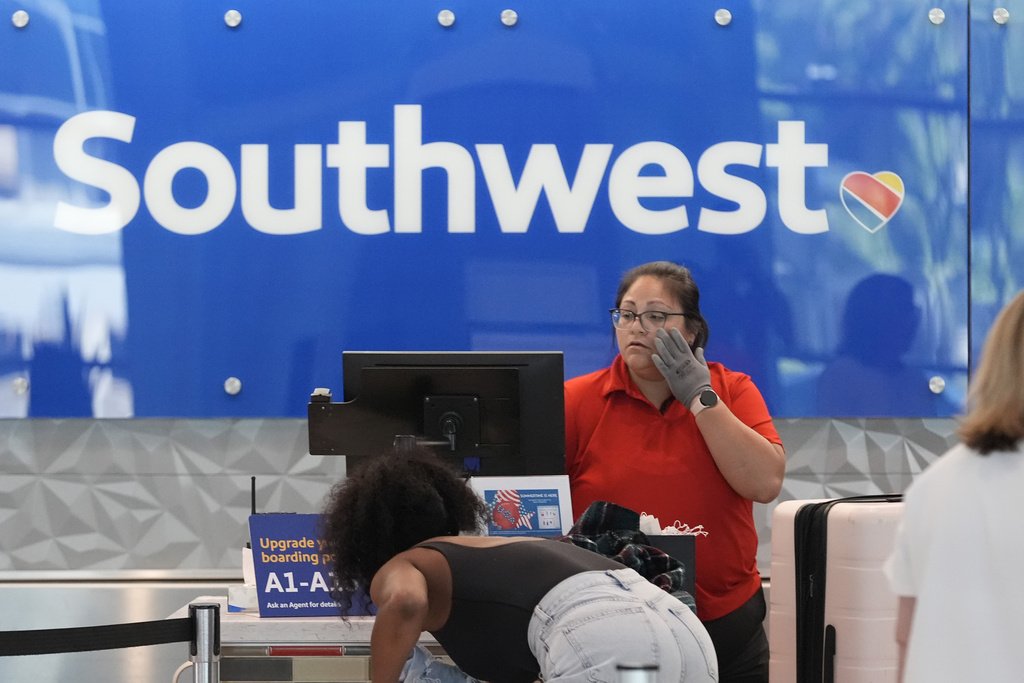Southwest Airlines shares jumped 4.7% last week, after board member Rakesh Gangwal made over $100 million in investments in the company between Sept 30th and Oct 1st. This is a rare occasion where Southwest has seen such positive news since the pandemic in 2020. The company had been slumping with its stock price, dropping over 30% from $54 in 2019 to $37 in 2022. Barely recovering since the fall, Southwest stocks reported a 52 week high of only $35.18 in 2024.
Questions arise as to Southwest Airlines’ former glory as America’s darling for cheap travels. As the fourth-largest budget airline in the country, Southwest is known for its customer service, low prices, and flexible seat plan. Up until the covid-19 pandemic, the stocks for southwest have stayed at a safe zone.
During a time when the entire flying industry was paralyzed, company executives at Southwest were positive about improving their fiscal performance. The company’s chief commercial officer, Andrew Watterson, told Fortune in 2021 that they shifted focus from business travel to holiday destinations, significantly reducing costly, empty return flights. Watterson projected an additional $13 billion in revenue, building on their pre-pandemic annual ticket sales of $63 billion. However, reports reflect otherwise. A technology malfunction in late 2022 caused more than 2700 flight cancellations, which was partially caused by cost cuts to mitigate a potential financial crisis during the pandemic. This ended up costing the airline $160 million in lawsuits with the U.S. Department of Transportation.
Despite Southwest’s efforts to revitalize its profit model by capitalizing on growing interest in budget airlines, the company continues to experience market losses. Over the past summer, the airline has been facing mounting pressures from angel investor Elliott Management to make financial and management restructuring. Southwest Airlines has made it abundantly clear that they want to maintain control over their internal affairs. Yet, it is becoming apparent that they are not just fending off competitors, but also struggling to sit afloat in their own financials.
Newly developed roadblocks from several aspects have impeded Southwest’s ability to push full efficiency. Its 50% hiring cuts in 2024 resulted in insufficient staff to manage flight frequencies, causing 1 to 1.5% of delays. Additionally, delays in Boeing’s plane deliveries, stemming from the Alaska Airlines scandal and related safety concerns, further slowed the rollout of the 737 Max and other aircrafts. Moreover, Southwest’s union delivered new negotiations for a 22% pay raise for flight attendants and 50% for pilots after two prior attempts for new contracts that provided more benefits for employees. Southwest, historically being stubborn over meeting union demands without lowballing, was finally willing to settle on this year’s contract.
As one of the original low-cost carriers, Southwest pioneered an efficiency-first approach that challenged the traditional hierarchy of seat classes, where luxury and business seats occupied more space than profitability allowed. Their original business model emphasized offering the lowest fares to popular destinations, a flexible cancellation policy, an efficient boarding process, and strong customer service. Though, this has proven to not be enough to overturn Southwest’s struggles with rising costs in today’s market.
The ongoing crisis at Boeing also contributes to Southwest’s increasing issues with maintaining their revenue levels. Most recently, Boeing is reportedly considering selling shares to fund their rebound for a $60 million debt slump. This all unfolded during the Alaska Airlines defunct plane door incident last year, which sent the company into a spiral being under scrutiny by the U.S Judicial Department and aviation authorities for faulty quality control. As a result, Boeing jets have been grounded, and manufacturing overhauls have disrupted the delivery of orders to loyal customers like Southwest. The unfulfilled orders have impeded on service efficiency, costing some budget carriers like Allegiant $30 million a year.
Amidst the Boeing debacle, Elliot Management demands Southwest’s incumbent management for better resource allocation, proposing a new panel of board members in July. Owning 10% of Southwest shares, Elliot Management is essentially asking for a complete restructuring of its original business model, with changes including assigned seating and moving away from the open boarding system. This shift reduces flexibility in seat selection and increases costs, as it requires more space for premium add-ons like extra legroom, which will ultimately impact ticket sales. On the other hand, assigned seating could also mean strategizing to meet the demands of a new demographic of business travelers who were not drawn to the inconvenience open boarding may bring.
Paradoxically, this will drive up the price of tickets and could also potentially deter the originally loyal customer base, therefore acting as an interesting dilemma of whether to keep its existing customer base and what makes them special, or branch out and change its business model to compete with the other budget airlines.

